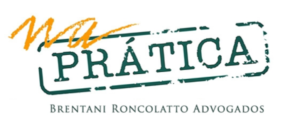blog
Memorandum: Provisional Measure nº 927/2020
3 de April de 2020 | Publications1. As it is known, COVID-19 (Coronavirus) has spread very fast and has infected simultaneously the population of several countries, and because of that, the World Health Organization has classified such viral infection as a pandemic disease. In Brazil, the Coronavirus epidemic was recognized as a national emergency situation of public health, in the Federal level, according to the Ordinance nº 188 issued by the Ministry of Health, as well as in the State and Municipal levels, according to Decree nº 64.862/2020 of the São Paulo State and Decree nº 59.283/2020, of the city of São Paulo.
2. As the jurisdiction to legislate about health is concurrent¹, that is to say it may be exercised by the Federal Government, by the States and by the cities, those entities started to legislate, adopting restriction measures regarding the circulation and meetings of people, including the isolation and quarantine, so as to avoid, or to restrain the spread of the disease.
3. The workers of the so-called essential services (such as health care providers, garbage collection, energy distribution, mobile and fixed commuted telephony, press and others) and the workers of telemarketing and teleatendance continue to work on premises. The others shall observe the quarantine, working at home.
4. Therefore, with the locomotion restriction of the labor force, the Provisional Measure nº 927/2020 was enacted, which establishes several rules for the Teleworking, such as:
a) without the need of an amendment to the employment agreement, companies may change the on premises work to the teleworking;
b) it is allowed not to control the working hours, nor the employer has the obligation to pay OT (over time);
c) teleworking is allowed also for interns and apprentices;
d) the employee must receive prior notice, with at least 48 hours, about the modification to teleworking;
e) matters related to the supply of the necessary equipment, infrastructure and expenses reimbursement shall be object of a written agreement, which shall be executed up to 30 (thirty) days after the teleworking regime is in place;
f) if the employee does not have the equipment and infrastructure necessary for the teleworking, the employer may provide them to the employee on a royalty free basis;
g) in case the employer may not offer the necessary equipment and infrastructure through a free-lease contract, the usual working hours shall be presumed as working hours, at the employer’s disposal;
h) The use of apps and communication programs outside the employee usual working hours shall not be considered as time at the employer’s disposal, except if otherwise provided for by the individual or collective bargaining;
5. Having in mind the demand reduction, the Provisional Measure nº 927 established flexibility to the employer´s related to the employee´s PTO (paid time off) (vacations), as below:
a) it is allowed that the employer anticipate the individual PTO, with a 48 (forty eight) hours prior notice;
b) even if the employee has not completed the respective acquisition period, the employer may grant it;
c) the PTO shall be at least 5 consecutive days;
d) the employees that belong to the COVID -19 risk group shall have priority for PTO;
e) the employer can postpone the PTO or the non-paid leaves of the employees that perform activities related to the health area or essential services. Such decision has to be formally informed to the employee, by written notice, sent by letter or by e-mail, being advisable a 48 hours prior notice;
f) employee and and employer may negotiate the anticipation of future PTO, by means of an individual agreement;
g) for the PTO granted during the public calamity state, the employer is allowed to pay the one third additional until the date that the Christmas bonus is due;
h) It is condition upon the employer´s sole discretion to accept the request of the employee to cash out 1/3 of the PTO;
i) The payment of the PTO granted during the state of public calamity may be postponed by the employer until the fifth business day of the following month of the start of the PTO;
j) In case of contract termination, the employer shall pay the PTO together with the due amounts for the termination of employment.
6. Other alternative brought by the Provisional Measure nº 927 was the possibility of anticipation and use of the holidays:
a) during the state of public calamity, the employers may anticipate the fruition of non-religious holidays, in doing so, the employers shall notify the employees, with a 48 hours prior notice, in written or by any electronic means. However, the anticipation of the religious holidays shall only occurs with the employee acceptance, by means of an individual written agreement.
7. Issues related to medicine and occupational safety were also subject of the Provisional Measure, with the suspension of some administrative requirements related to occupational health and safety:
a) during the state of public calamity, the obligation to carry out the occupational, clinical and complementary medical exams is suspended, except for the dismissal clinical exam, which may be dismissed if the most recent occupational medical exam was done no less than one hundred and eighty days;
b) The exams will be performed in sixty days, counted as of the date the public calamity has ended. However, if the doctor who is in charge of the medical control program and occupational health program in the company considers that the extension represents a risk to the employee’s health, the doctor will point out to the employer the need to carry on the exam.
c) during the state of public calamity, the employer´s obligation to organize the periodic and occasional training sessions to the employees, as provided for in the regulatory norms for safety and health at work, is suspended. The training sessions will be performed in ninety days, counted as of the state of public calamity has ended;
d) The internal accident prevention commissions may be maintained until the end of the state of public calamity and if there are any elections in progress, they may be suspended.
8. Another topic to be highlight is the deferral of the contribution to FGTS (Severance Fund) payment:
a) suspension of the obligation to pay the FGTS by the employers, regarding March, April and May 2020, which due date would be April, May and June 2020, respectively. The payment of such FGTS contributions may be made in installments, as explained below, without being readjusted by inflation, or without any late penalties;
b) the payment of the obligations related to the aforementioned contributions may be made up to six monthly installments, with due date on the seventh day of each month, as of July 2020;
c) To enjoy this possibility, the employer must comply with all the obligations regarding information to the Social Security by June 20th, 2020;
d) in case of the termination of the employment agreement, the suspension will no longer be effective and the employer will be obliged to pay all of the corresponding period amounts, without any late penalties, if the payment observes the due date;
e) suspension of the counting of statute of limitation regarding FGTS debts for 120 (one hundred and twenty) days; and
f) the validity of the certificates attesting the regularity before the Brazilian Government issued before the Provisional Measure will be postponed for 90 (ninety) days.
9. The Provisional Measure also addressed the extension of the working hours to the health care providers:
a) during the state of public calamity is allowed to the health care providers, by means of written individual agreements, even for the unhealthy activities and for the twelve-hour by thirty-six hours of rest work:
I – extend the working hours further to the legal limit of two hours a day; and
II – Implement overtime schedules between the thirteenth and the twenty-fourth hour of the inter work period rest, not being subject to any administrative penalty;
b) The employer shall ensure to the employee the paid weekly rest. The OT (overtime) may be offset as bank of hours, in eighteen months, as from the end of the state of public calamity, or may be paid as OT.
10. The Provisional Measure 927 is already in force, but will cease to be if Congress does not approve its conversion as Law, within 120 days, counted as of the date the Provisional Measure was published in the Official Gazette. ²It is important to notice that soon after its enactment, its section 18, which allowed the suspension of the employment agreements for four months, was revoked, as published in an extra edition “C” of the Official Gazette dated March 23rd, 2020.
11. The Provisional Measure 927 did not address the meal ticket and transportation allowance matters. Notwithstanding the foregoing, it is defensible that the transportation allowance is not paid to the employees who are working in home office. As for the the meal ticket, it is our understanding that such ticket shall continue to be paid and may not be suspended during the quarantine.
- ¹- Article 24, XII, Federal Constitution.
- ²- Article 62, paragraph 3rd, Federal Constitution.
We remain at your disposal to clarify any questions.
Yours Sincerely,
BRENTANI RONCOLATTO ADVOGADOS

